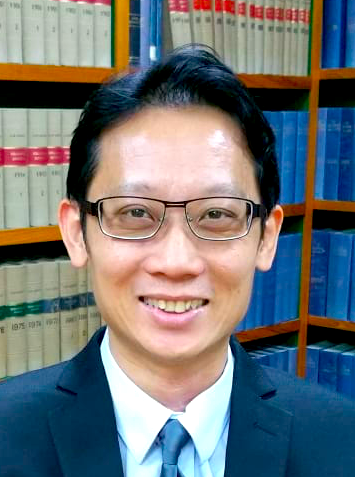
The paradoxes of our belief are that sorrow and joy, pain and growth, and faith and doubt are not mutually exclusive. Most times, they are mutually empowering, says Michael Han. Photo by Jesus Rocha on Unsplash.
Covid-19 has indeed changed the way we do church. It has challenged how we make the connection with people.
When you take away the weekly physical mass gathering, what becomes of the Church?
When the numbers are down to five, when only Zoom is allowed, how do we relate to one another? Are we then taking a walk down memory lane to the time when Jesus ministered to just the defining 12, spending His life and most intimate hours with them?
When I talked to a church member, I felt that what has remained unchanged before and after Covid is the brokenness of a life struggling for authenticity in the faith.
Priorities
Whether you are in a crowd belting out catchy worship songs or attending a cell group in someone’s home, that brokenness is readily identifiable in a world that has become more confounding than ever.
Through the lens of Calvary, not all brokenness demands healing, not all sorrow can be prayed away.
For this reason, I feel that the Church should stop pretending to be a place where they put the Christian ideology before the Christian community, however good the intentions are. My qualms are not against the latter, but the obsession of the former.
Sometimes we can worship the idea of a thing more than the thing itself.
We then see a life/soul through the lens of professionalism instead of the lens of Calvary, where not all brokenness demands healing, not all sorrow can be prayed away, and not all personal gratification is about getting what you want; for sometimes, it is about receiving just the opposite of that, and then demonstrating the cultivated fruit of the Spirit within us.
Navigating well
Pastor Charles Swindoll once said: “The church was never meant to be a ‘professional organisation’. We’ll let the world have all of those. The church is not a slick, efficient corporation with a cross stuck on its roof. It is a ministry.
“We do not look to the government for support or to the state for direction. We don’t seek the counsel of Wall Street for financial suggestions. We have one Head, the Lord Jesus Christ. We do not rely on any earthly organisation or some rich individuals to sustain the ministry.
Prayer is a way of “including the unknown and unpredictable in the outworking of the grace of God in our lives”.
“The Church is a spiritual entity, built up and supported by its Founder, Jesus, who promised to build His Church.”
Now, I am not saying that we should not seek after righteousness embodied in Christ, the kind that results in an overcoming life.
What I am concerned about is that that road often leads us to become complacent with efficiency, dispensing with one impersonal Scripture after another, rather than finding peace, assurance and comfort notwithstanding the uncertainty and unpredictability of a broken life that is embarking on a journey that is not meant for quick fixes.
Alas, the paradoxes of our belief are that sorrow and joy, pain and growth, and faith and doubt are not mutually exclusive. Most times, they are mutually empowering if we see beyond the vain struggles to make human sense of it.
These borrowed words of theologian Ray Anderson make the same point: “Prayer is not a means of removing the unknown and unpredictable elements in life, but rather a way of including the unknown and unpredictable in the outworking of the grace of God in our lives.”
Define “I”
Here, I recall what a famous preacher once said. He recounted that his own 11-year-old daughter had a difficult time figuring him out. In an interview, he said: “One day she asked me a question that absolutely blew me away – from my own child!
You can memorise entire books of the New Testament and still be unaware of your depression and anger.
“Daddy, who are you? That man up there (onstage), I don’t know.”
He added: “If my own child is asking that, surely the whole world is asking that.”
I guess we are all asking ourselves that: “Who am I?”
When we lead in a church, or as leaders in a ministry, who are we? Are we projecting what we want others to see, the part of us that avoids looking weak, broken and defeated? Is our optimism too contrived, unable to be candid with our members because we are still struggling with our own insecurities?
Jekyll and Hyde
From his book The Emotionally Healthy Church, Pastor Peter Scazzero once made this candid observation about leadership in a church: “We can be spiritually mature while remaining emotionally immature.”
For those who … struggle to keep up with appearances, it is a case of “for when I am weak, then I am not strong.”
He then went on to list the following frailties of humanity:
- You can be a dynamic, gifted speaker for God in public and be an unloving spouse and parent at home.
- You can function as a church board member or pastor and be unteachable, insecure and defensive.
- You can memorise entire books of the New Testament and still be unaware of your depression and anger, even displacing it onto other people.
- You can fast and pray a half-day a week for years as a spiritual discipline and constantly be critical of others, justifying it as discernment.
- You can lead hundred of people in a Christian ministry while driven by a deep personal need to compensate for a nagging sense of failure.
- You can pray for deliverance from the demonic realm when in reality you are simply avoiding conflict, repeating an unhealthy patten of behaviour traced back to the home in which you grew up.
Alas, I recall 2 Corinthians 12:10 which reads: “For when I am weak, then I am strong.”
Sadly, for those who privately believe in their own invulnerability, or struggle to keep up with appearances, it is a case of “for when I am weak, then I am not strong.”
Ready?
So, I return to the church member I spoke to.
The cry for authenticity is real and I resonated with what the member had to say. It was also a cry for leaders to unmask themselves, to show their cracks, so that light can come through.
Let me leave you with this poem by John Newton about enduring spiritual maturity and how God works in ways most disagreeable to our human expectations:
I ask the Lord that I might grow
In faith, and in love, and every grace,
Might more of His salvation know
And seek more earnestly His face.I hoped that in some favoured hour
At once He’d answer my request,
And by His love’s constraining power
Subdue my sins, and give me rest.Instead of this, He made me feel
The hidden evils of my heart;
And let the angry powers of hell
Assault my soul in every part.
This reflection was first published by Michael Han on Facebook and has been republished here with permission.
Reflection and Discussion
- “The church is not a slick, efficient corporation with a cross stuck on its roof. It is a ministry.” What do you see as the difference/s between a corporation and a ministry? With this consideration, would you change anything from the way you are currently serving or running a ministry?
- How are you doing emotionally today? Are you able to find peace, assurance and comfort notwithstanding the uncertainty and unpredictability of a broken life?
- If you are a leader, what is one thing you can do to “unmask” yourself further in vulnerability and authenticity? If you are a member, what is one thing you will commit to doing to make church a safe place for your leaders to share authentically?
We are an independent, non-profit organisation that relies on the generosity of our readers, such as yourself, to continue serving the kingdom. Every dollar donated goes directly back into our editorial coverage.
Would you consider partnering with us in our kingdom work by supporting us financially, either as a one-off donation, or a recurring pledge?
Support Salt&Light



